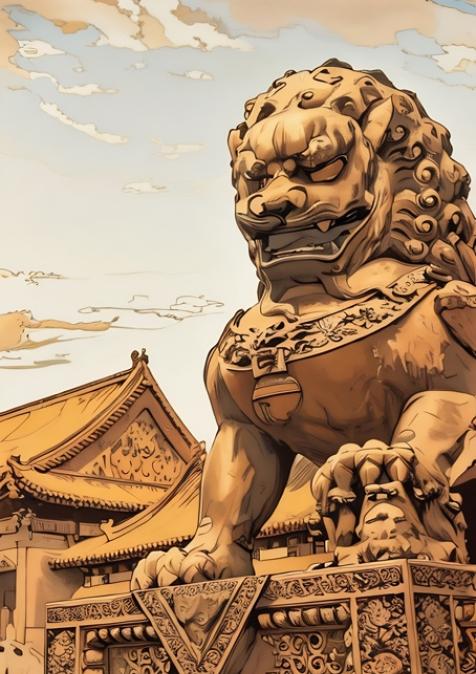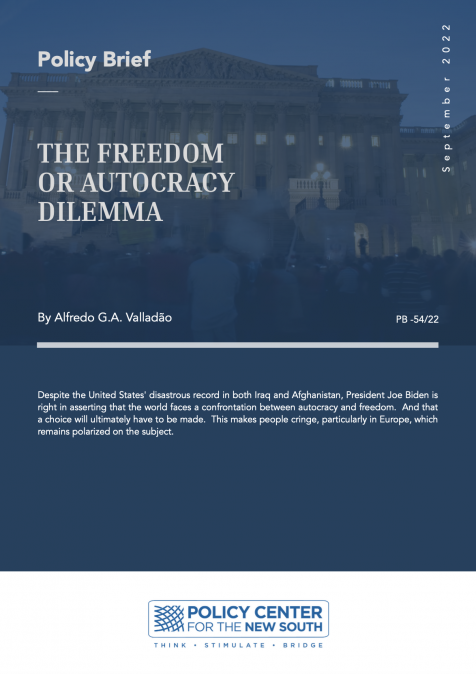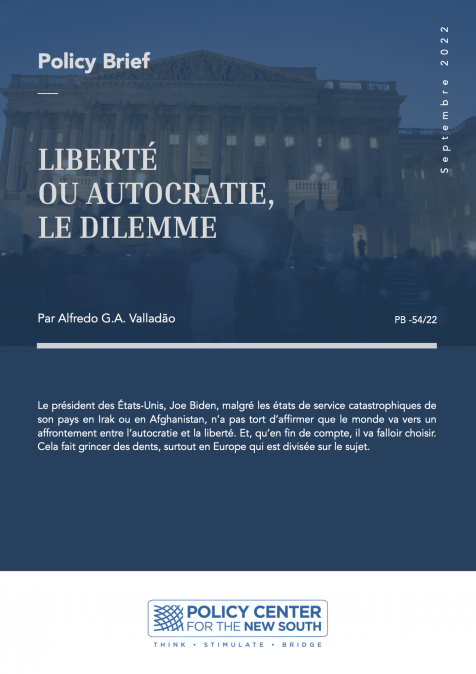Publications /
Opinion
The history of relations between the West and East Asia is deeply rooted in fear, dating back to the 13th century when Mongol hordes swept from Central Asia into the European steppes. This civilizational neurosis took root in the European imagination and has since shaped Western perceptions of the East. The derogatory racial metaphor “Yellow Peril”, which emerged in the late 19th century, was not a new invention but rather a recurring theme invoked whenever politically expedient. It served to describe the perceived threat of East Asian immigration to the Western world.
Today, what is often framed as a “strategic concern” about China is merely the spectral return of that same old ghost—now cloaked in geopolitical jargon and economic statistics. This matrix of panic predates modernity, stretching back to Roman caravans that carried not only silk but also civilizational anxiety.
The East has always been both an object of desire and a source of dread—a duality encoded into racial hierarchies by nineteenth-century colonialism. China has long been cast as a paradox: “barbaric” when sealed behind its Great Wall, “menacing” when open to global trade. Today, the same script is recycled—Beijing is accused of both isolationism and expansionism, depending on which rhetorical angle best suits the moment.
This anxiety, however, cannot be fully understood without confronting the deeper ideological scaffolding that underpins Western self-perception. From the medieval worldview onward, the West has imbued itself with a sense of divine mandate rooted in its Judeo-Christian religious heritage—a belief in moral and spiritual supremacy over the rest of the world. This belief system provided the spiritual architecture for later political justifications: it was not merely that Europe could dominate others, but that it ought to. This introspective examination of the West's self-image is crucial to understanding the fear of China and the broader dynamics of international relations.
By the time of the Enlightenment, this religious exceptionalism had evolved into a secular, yet equally messianic, narrative: the doctrine of modernity. This belief system proclaimed reason and progress as the telos of humanity, positioning the West as the vanguard of a civilizing mission. Colonialism was thus reframed not simply as domination, but as a civilizing mission—a burden nobly borne to uplift the so-called 'barbaric' corners of the globe. Within this framework, Asia was acceptable only to the extent that it emulated the West. Any deviation—autonomy, self-determination, or success outside the liberal paradigm—was perceived as a challenge to the ordained historical arc.
Thus, the contemporary fear of China is a broken mirror—it reflects far less about Asian realities than it does about the fractures within the Western project itself. Modern China disturbs not so much through its actions—arguably less expansionist than those of Atlantic powers over the past five centuries—but through its very existence as a center of power that rejects the liberal script. It exposes an inconvenient fallacy: that civilisations which neither read nor implemented Fukuyama have, in fact, postponed the “end of history.” Asia's success confronts the sacred dogmas of Western modernity and Enlightenment rationality, which once purported to guarantee the West its divine mandate to steward humanity's future. A critical examination of Western modernity is therefore essential to understanding the fear of China.
This suspicion also lays bare the latent racism embedded within modernity itself. Japan, South Korea, Singapore, and China are often framed as anomalies—peculiar exceptions that defy the liberal canon—rather than as legitimate expressions of alternative models. When Asia prospers, the West demands to know how: through technology theft? Currency manipulation? Efficient authoritarianism? When the West falters, it seeks culprits—and inevitably, it points to China. The message is clear: development is acceptable only when it follows the instruction manual authored in Washington.
The fear of China, then, is not born of China itself, but of the projection cast upon it by the West—as though the Asian giant were the incarnation of some ancient nightmare. It is less an objective threat than a symbolic discomfort. China threatens not by force, but by precedent: What if state capitalism proves more effective than neoliberalism—a theory that champions free markets and minimal government intervention? What if liberal democracy is not the only viable path to development? In this sense, the demonization of Beijing is less about geopolitics than about hegemonic anxiety—the existential unease as a civilization begins to realize that its “universal” values, perspectives, and theology may, in fact, have always been parochial doctrines cloaked in imperial ambition.
The tragic irony is this: while Europe set the world ablaze through colonial wars, crusades, and campaigns of conquest, Asia cultivated political cosmologies grounded in harmony, continuity, and moderation. Yet history is written by the victors. And so the caricature of the "Yellow Peril" persists—a convenient fiction to mask an unpalatable truth: the West does not fear China because it is aggressive; it fears China because it is successful. It does not fear Asia for its violence, but for its resilience.
Fueling this narrative is a media landscape often captured by oligarchic interests and aligned with entrenched geopolitical structures. It perpetuates stigma and distortion, feeding the collective imagination with images of menace rather than fostering a deeper understanding of the planet's civilizational diversity. The rise of China is not merely an economic event—it is an ontological provocation, challenging the West's symbolic monopoly.
Exacerbating this problem is academic negligence—driven more by complacency than ignorance—which has allowed distorted narratives about Asia, and China in particular, to flourish. I vividly recall two lectures I attended earlier this year in São Paulo, delivered by highly esteemed economists, in which they confidently predicted China's imminent economic collapse and praised the supposed strategic genius of the newly elected U.S. President for his confrontational stance toward Beijing. These perspectives were not only superficial—they willfully ignored the structural complexities of the global economy. Trump's infamous tariff policy, a misguided and ultimately counterproductive maneuver, threatened to become the seventh bankruptcy in his checkered business career—this time on a national scale.
Faced with this shifting reality, the Global South must recognize that refusing to fear the so-called “Yellow Peril”—and instead engaging with it—may be among the most strategic postures it can adopt in the 21st century. China's rise need not be viewed as a threat, but rather as an invitation: to cooperation, to multipolarity, and to the construction of a new global architecture grounded in shared opportunity and mutual respect.
In a world where conflict is too often justified by illusions of civilizational superiority—and where war has long served the ambitions of the self-anointed “chosen,” it is time to consign such instruments to history. The path forward must be one of peace, partnership, and dignity. The Global South must resist the temptation to internalize the anxieties of the Global North. Instead, it must articulate its own vision, strengthen its institutions, and assert its agency within an evolving, pluralistic international order. As the saying goes: “In the plurality of creation lies the signature of the Creator.”







